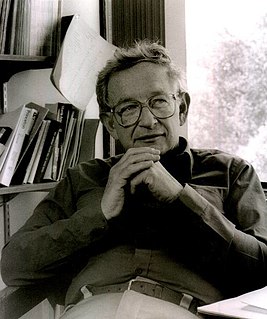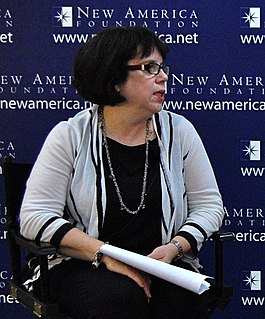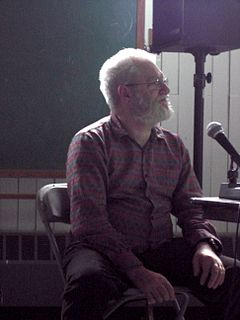 W
WPhilip Warren Anderson was an American theoretical physicist and Nobel laureate. Anderson made contributions to the theories of localization, antiferromagnetism, symmetry breaking, and high-temperature superconductivity, and to the philosophy of science through his writings on emergent phenomena.
 W
WJay Walter Bennett was an American multi-instrumentalist, engineer, producer, and singer-songwriter, best known as a member of the band Wilco from 1994 to 2001.
 W
WDeborah Blum is an American journalist and the director of the Knight Science Journalism program at the Massachusetts Institute of Technology. She is author of books including The Poisoner's Handbook (2010) and The Poison Squad (2018), and has been a columnist for The New York Times and a blogger for Wired.
 W
WWard LeRoy Churchill is an American author and political activist. He was a professor of ethnic studies at the University of Colorado Boulder from 1990 until 2007. The primary focus of his work is on the historical treatment of political dissenters and Native Americans by the United States government. His work features controversial and provocative views, written in a direct, often confrontational style.
 W
WRoger Joseph Ebert was an American film critic, film historian, journalist, screenwriter, and author. He was a film critic for the Chicago Sun-Times from 1967 until his death in 2013. In 1975, Ebert became the first film critic to win the Pulitzer Prize for Criticism. Neil Steinberg of the Chicago Sun-Times said Ebert "was without question the nation's most prominent and influential film critic," Tom Van Riper of Forbes described him as "the most powerful pundit in America," and Kenneth Turan of the Los Angeles Times called him "the best-known film critic in America."
 W
WEugie Foster was an American short story writer, columnist, and editor. Her stories were published in a number of magazines and book anthologies, including Fantasy Magazine, Realms of Fantasy, Orson Scott Card's InterGalactic Medicine Show, and Interzone. Her collection of short stories, Returning My Sister's Face and Other Far Eastern Tales of Whimsy and Malice, was published in 2009. She won the 2009 Nebula Award and was nominated for multiple other Nebula, BSFA, and Hugo Awards. The Eugie Foster Memorial Award for Short Fiction is given in her honour.
 W
WDaniel Graham is an American artist, writer, and curator.
 W
WTheodore W. "Theo" Gray is a co-founder of Wolfram Research, science author, and co-founder of app developer Touch Press.
 W
WJosé Graziano da Silva is a Brazilian American agronomist and writer. As a scholar, he has authored several books about the problems of agriculture in Brazil. Between 2003 and 2004, Graziano served in the Luiz Inácio Lula da Silva cabinet as Extraordinary Minister for Food Security, being responsible for implementing the Fome Zero program, which was a focal point of the Lula Administration's cash transfer program Bolsa Familia. On June 26, 2011, Graziano was elected director-general of the Food and Agriculture Organization (FAO), becoming the first Latin American ever to hold the position. After his first term from 1 January 2012 to 31 July 2015, Graziano da Silva was re-elected for a second 4 year-term during FAO's 39th Conference.
 W
WAlexander Demitri "Alex" Shimkin was an American war correspondent who was killed in Vietnam. He is notable for his investigation of non-combatant casualties in Operation Speedy Express.
 W
WDavid Foster Wallace was an American author of novels, short stories and essays, as well as a university professor of English and creative writing. Wallace is widely known for his 1996 novel Infinite Jest, which Time magazine cited as one of the 100 best English-language novels from 1923 to 2005. His posthumous novel, The Pale King (2011), was a finalist for the Pulitzer Prize for Fiction in 2012.